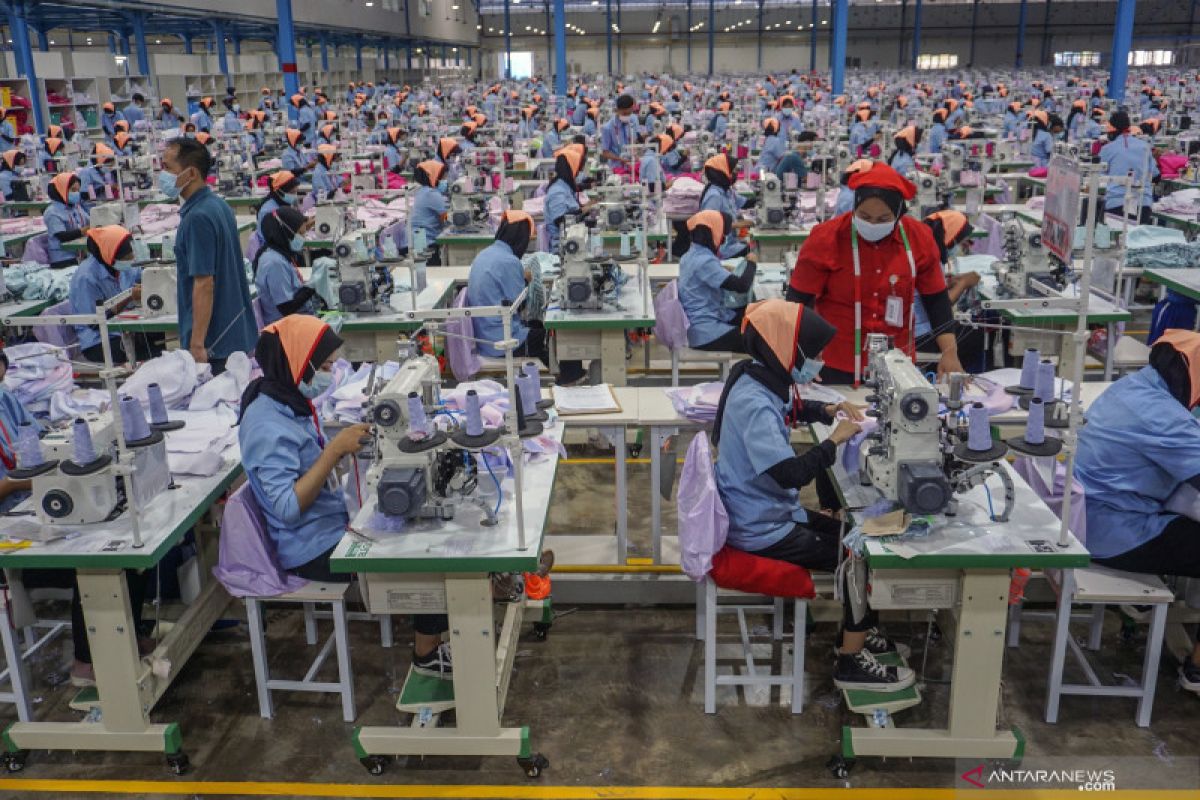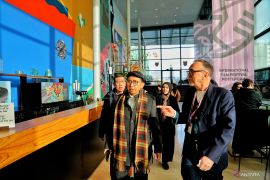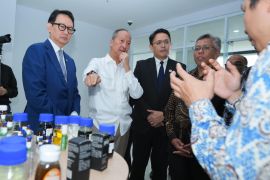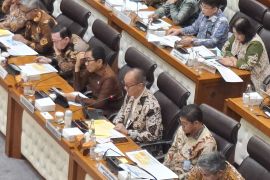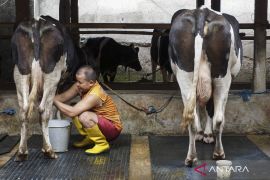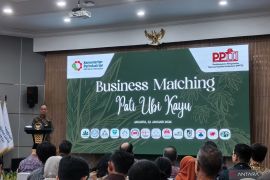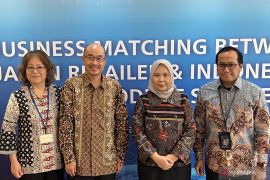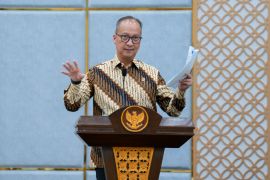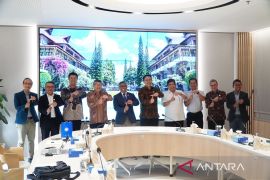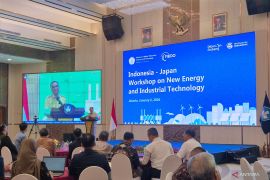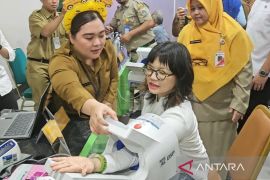Minister Agus Gumiwang Kartasasmita stated in a statement on Friday that the ministry will implement policies to minimize the impact of global economic conditions, particularly in Europe, on the industry.
The United States and Europe are Indonesia's main textile importers.
During the January-April 2023 period, the country's export value of textile and textile products decreased by 28.44 percent to US$3.7 billion compared to the corresponding period in 2022, which recorded US$5.1 billion.
On the other hand, the domestic textile market has also experienced an influx of imports from China.
China, facing reduced demand, has started to stockpile textile products and seek new markets, including Indonesia.
"Indonesia's stable economic growth and large population make us a potential market for textile products from China," he said.
He added that this situation is considered a threat to the domestic textile industry.
Therefore, the government needs to promptly adopt policies to protect the domestic market and minimize the impact of declining demand and potential dumping from China, he said.
He stated that the ministry has received reports of a reduction in production in the fiber industry.
"This is due to the influx of synthetic fibers, filaments, and fabrics into the domestic market," Kartasasmita stated.
This condition has also resulted in a significant reduction in manpower. So far, the textile industry has terminated the employment of up to 70 thousand people.
To address this issue, he mentioned that the ministry will implement short- and long-term policies to enhance supervision of the local market and improve the domestic textile industry.
Furthermore, the ministry proposes changing the limited prohibition policy and shifting supervision from post-border to border zones for apparel products, clothing accessories, and textile goods.
Another step to be taken is the immediate formulation of industry standards, including the preparation of technical specifications (ST) and procedural guidelines (PTC), to ensure business certainty, smoothness, and efficiency in domestic and international trade transactions.
By implementing ST and PTC preparation, Kartasasmita hopes to enhance national competitiveness and create fair and transparent business competition in trade and business certainty.
The ministry will also evaluate the existence of bonded logistics centers (PLB), totaling 106, spread across 159 locations.
The evaluation of PLBs is crucial to investigate alleged deviations in the release of imported goods from PLBs. This is evident from the large number of imported ready-made garments on e-commerce platforms, offered at significantly cheaper prices and quickly reaching consumers.
The next step is to follow up on proposed electricity payment relief incentives for the industry.
The ministry has also implemented policies through programs to increase exports, control imports, and enhance industrial competitiveness.
The export-boosting program is carried out by encouraging free trade agreement (FTA) cooperation with the European Union and the United States.
In an effort to increase industrial competitiveness, the government is developing and training industrial human resources, restructuring industrial machinery and equipment, and subsidizing certain natural gas prices, particularly for the upstream textile industry.
Data from the ministry indicates that in the first quarter of 2023, the textile industry's GDP growth rate was 0.07 percent, compared to 3.61 percent (year-on-year) in 2022.
The industry's contribution to the national GDP in the first quarter of 2023 also decreased to 1.01 percent, compared to 1.10 percent in the first quarter of 2022.
The utilization rate of the textile industry declined to 67.59 percent in May 2023. A similar trend was observed in the apparel industry, with a utilization rate of 74.79 percent.
Related news: Ministry collecting data on woven textile ecosystem of East Sumba
Related news: Ministry budgets Rp4.7 bln to boost textile industry's competitiveness
Translator: Ade Irma Junida, Cindy Frishanti Octavia
Editor: Anton Santoso
Copyright © ANTARA 2023
